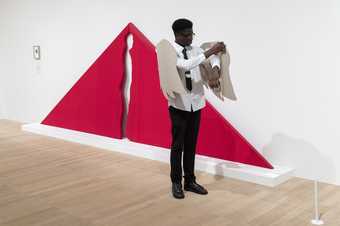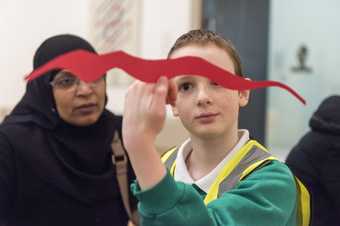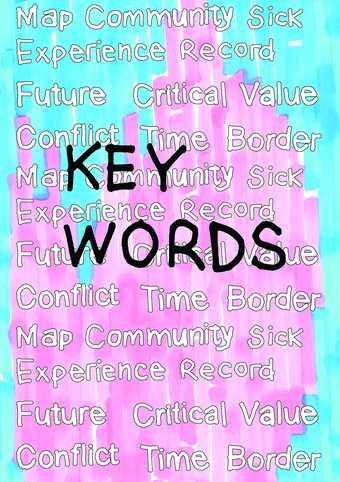
Key Words teaching resource front cover, designed by Evan Ifekoya
Informed by conversations with teachers, students, artists and academics, Key Words offers creative strategies to support open dialogue and champion art as a powerful tool and catalyst for change.
Artist Evan Ifekoya invites you to utilise the ambiguity of language to complicate the relationship between race and other aspects of identity (gender, class, sexuality, ability) as a way of supporting engaged, contextualised, meaningful conversation and recognition of difference.
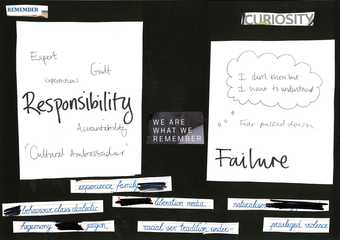
Lexicon produced by Evan Ifekoya as part of the Art and Language Study Day,Tate Britain, 2015
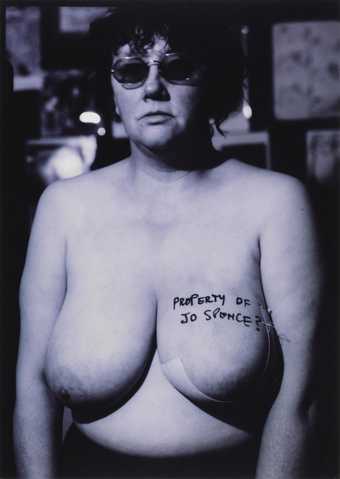
Jo Spence, with Terry Dennett
Crisis Project / Picture of Health? (Property of Jo Spence?) (1982)
Tate
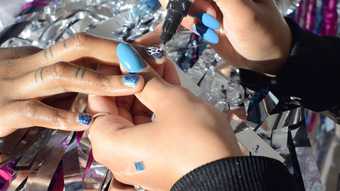
Evan Ifekoya, Okun Song 2016, video still

Sheba Chhachhi
Sathyarani - Anti Dowry Demonstration, Delhi (1980, printed 2014)
Tate
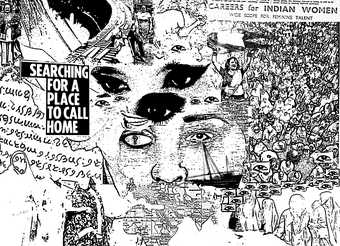
Raju Rage, Where Are Our Grandmothers? 2015, screen print
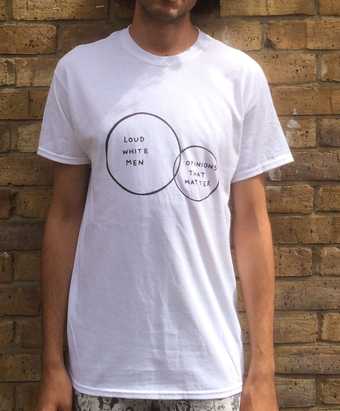
Rudy Loewe, Loud White Men 2015
© Rudy Loewe

Donald Rodney
In the House of My Father (1996–7)
Tate
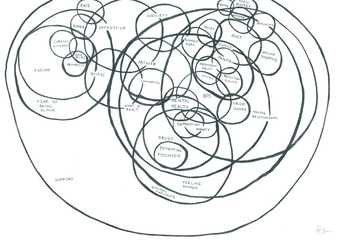
Rudy Loewe, Mental Health Diagram 2015, drawing on paper
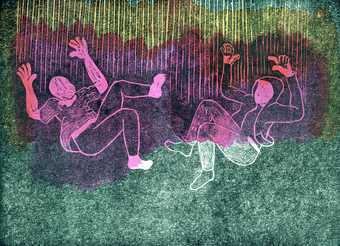
Rudy Loewe, Freefall 2014, woodcut
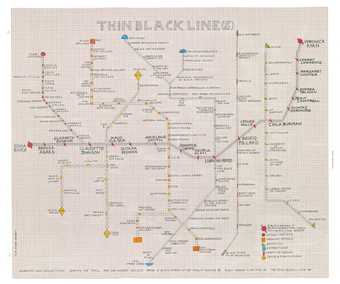
Lubaina Himid, Thin Black Line(s): Moments and Connections 2011, pencil and crayon on graph paper
The framing of this resource takes language as a starting point. More specifically, it draws on five keywords that through an expanded field of research and provocations, explores ideas around culture, ethics and identity in relation to art and pedagogy.
The keywords interrogated within this resource are:
Community
Start from your own understanding of community and use artworks and artists practice to interrogate the word further.
Ask your students: What communities or collectives are you part of?
Experience
Think through ideas of culture, identity and privilege to question how your own experiences shape how you make, talk about and interpret art in the classroom.
Ask your students: How might you do things differently tomorrow?
Map
Enter an artists discussion on existing models for mapping art history and question the gaps in your own knowledge to expand and explore the representation of cultural difference in the classroom.
Ask your students: How would you map your own canon of art history? / Where are the gaps in your own knowledge of art history?
Record
Unpick the power and politics of collecting, archiving, and documenting and find tools and tips for uncovering artists practice/expanding references in the classroom.
Ask your students: How have artists taken control of their own narratives?
Sick
Complicate the relationship between race and other aspects of identity – ability, gender, class, sexuality – and open up meaningful conversations and recognition of difference…
Ask your students: What impact does your own health have on your practice?

